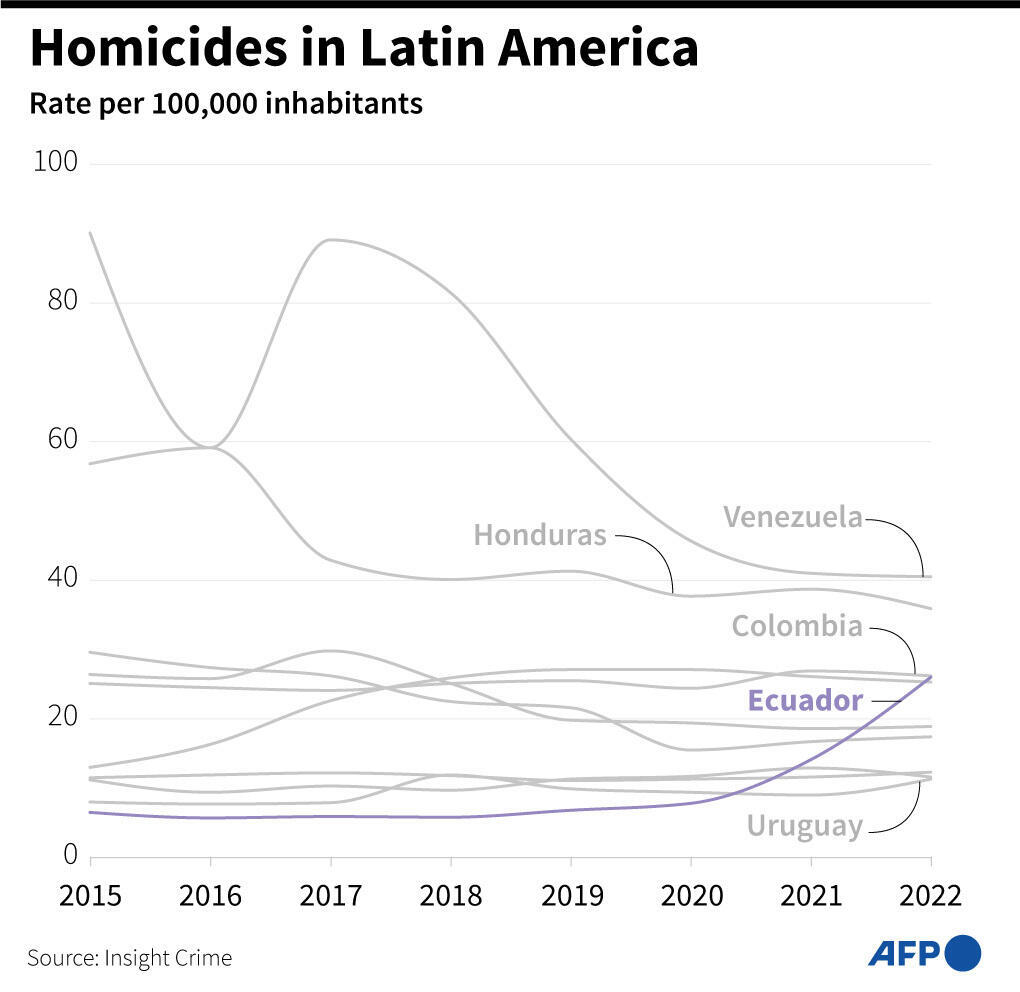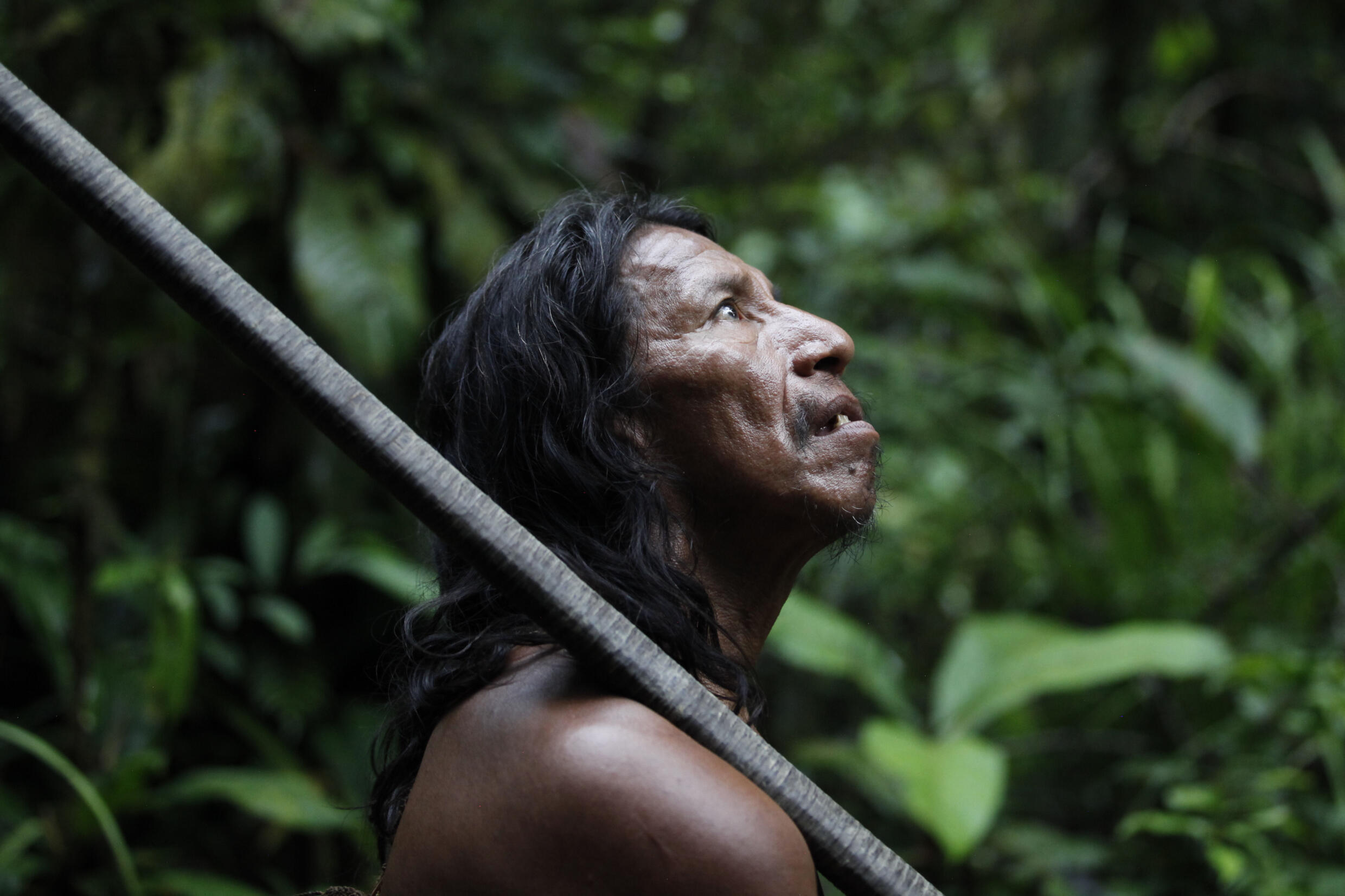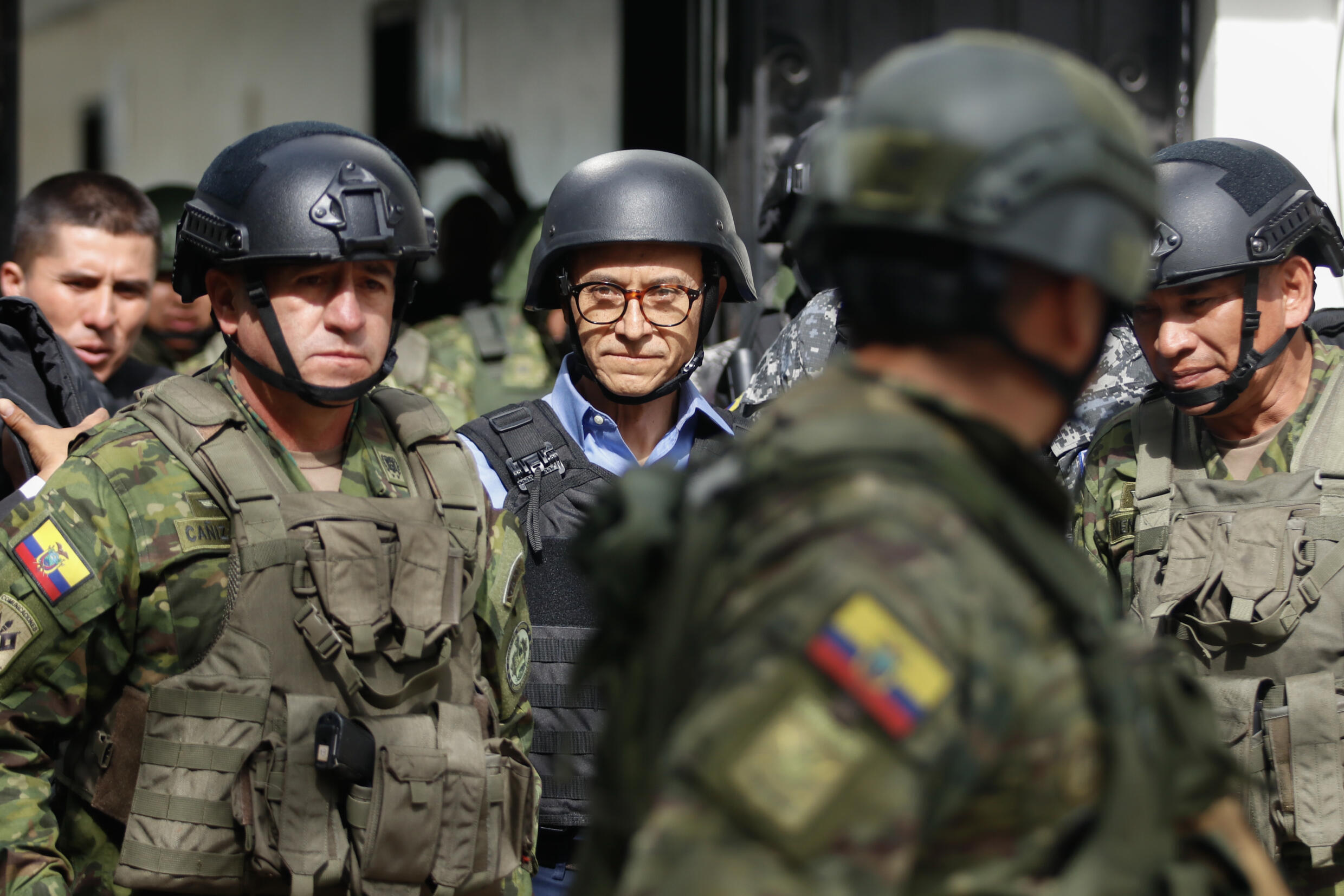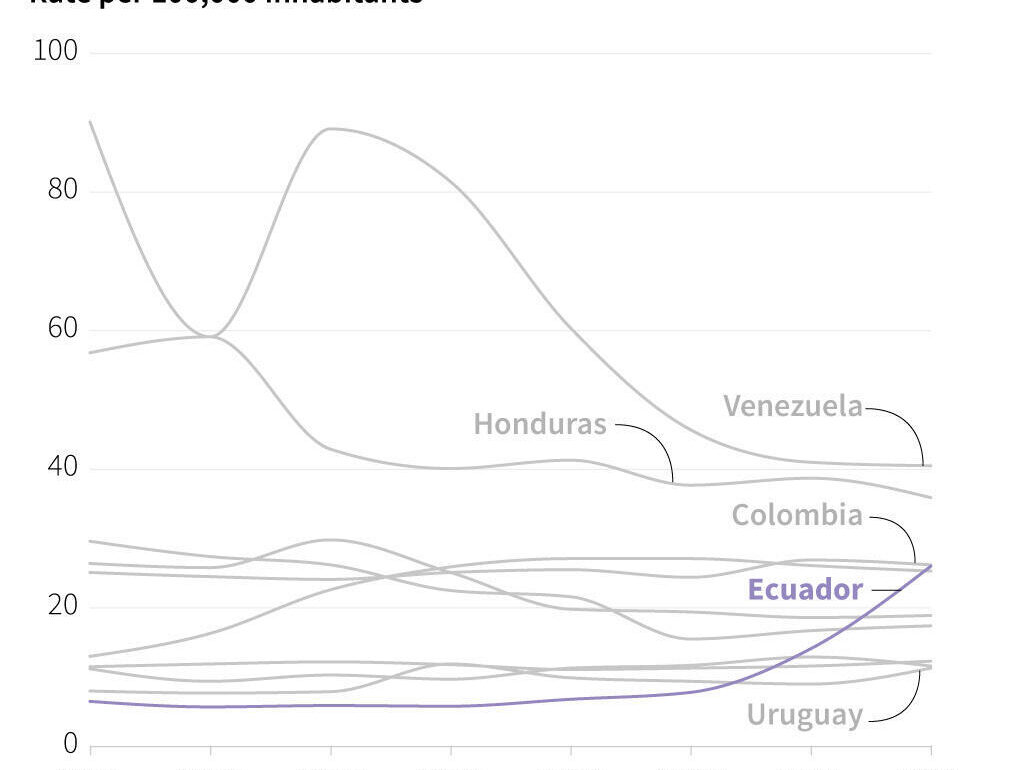Quito (AFP) – Heavily-armed security officers kept watch Sunday as Ecuadorans voted in a presidential election marked by the murder of a top candidate and despair over the lawlessness that has engulfed the once-peaceful nation.
Polls closed after a tense day, with soldiers and police searching voters at the entry to polling stations, while some of the eight presidential candidates wore helmets and bulletproof vests to cast their ballots.
The small South American country has in recent years become a staging for foreign drug mafias seeking to export cocaine, stirring up a brutal war between local gangs.
The murder of serious presidential contender Fernando Villavicencio on the campaign trail less than two weeks before the vote underscored the challenges facing the country.
“The most serious problem is insecurity,” said voter Eva Hurtado, 40, as she left a polling station north of the capital Quito on Sunday morning. “So many crimes, assassinations, disappearances. We are afraid.”
“Security, above all the security of our families, of our people, must be improved,” said public worker Luis Veloso, 52.

Villavicencio’s killing has reshuffled the electoral cards, with none of the eight contenders expected to get an absolute majority — likely forcing a runoff on October 15.
Ecuadorans voted for a successor to conservative leader Guillermo Lasso, who called a snap election to avoid an impeachment trial just two years after coming to power.
Lawyer, reporter, sniper
Leading the polls before Villavicencio’s murder was Luisa Gonzalez, 45, a lawyer from the leftist party of former president Rafael Correa.
Villavicencio, who was polling second before his murder, was replaced at the last last minute by a close friend, another journalist, Christian Zurita, who witnessed his gunning down.
Hours ahead of the vote, Zurita said he was receiving death threats on social media.
“The threats against my life and my team will not stop us, but they are forcing us to take greater security protocols,” he wrote on X, formerly Twitter, adding that his party had alerted authorities and election observers.
Political analysts say the candidate who has seen the biggest boost to his popularity is 40-year-old right-wing businessman Jan Topic.
Nicknamed “Rambo,” the former paratrooper and sniper with the French Foreign Legion has vowed to wipe out criminal gangs and build more prisons, emulating El Salvador’s Nayib Bukele.
While casting his ballot, Topic urged voters to elect “the candidate who has the experience, the will, and the plan to eradicate violence in the country.”




Other leading candidates are right-wing former vice president Otto Sonnenholzner and leftist Indigenous attorney Yaku Perez.
In one of the world’s most biodiverse countries, two key referendums are taking place on Sunday alongside the election.
One will ask voters to choose whether to continue oil drilling in an Amazon reserve that is home to home to three of the world’s last uncontacted Indigenous populations.
Another focuses on whether to forbid mining activities in the Choco Andino forest.
“I feel bad voting in favor of oil exploitation, but Ecuador lives off this oil,” said electrician Magdalena Maurisaca.
Brutal gang war
Ecuador was once seen as a haven of peace wedged between cocaine-producing nations Colombia and Peru.
The small country straddles the Andes and the Amazon, and was best known as the world’s top exporter of bananas and home to the biodiverse Galapagos Islands, where British scientist Charles Darwin developed his theory of evolution.
However, in the past five years its large ports, lax security and corruption have lured foreign cartels that have come under increased pressure from the war on drugs in Mexico and Colombia.




A struggle for power between local gangs has mostly played out in prisons, where 430 have been killed since 2021, leaving a trail of dismembered and burned bodies.
“Ecuadorans are going to vote with three feelings: fear of insecurity… pessimism regarding the economic situation and distrust of the political class,” political scientist Santiago Cahuasqui of the SEK International University told AFP.
In 2022, the country hit a record of 26 murders per 100,000 inhabitants, higher than the rate in Colombia, Mexico or Brazil.
Voters will also elect members of the 137-seat parliament.
Initial results are expected to trickle in late Sunday, with a final tally expected in 10 days.
The new president will take office on October 26 and will serve only the remainder of Lasso’s term, a year and a half.
© 2023 AFP
This post was originally published on this site be sure to check out more of their content.







